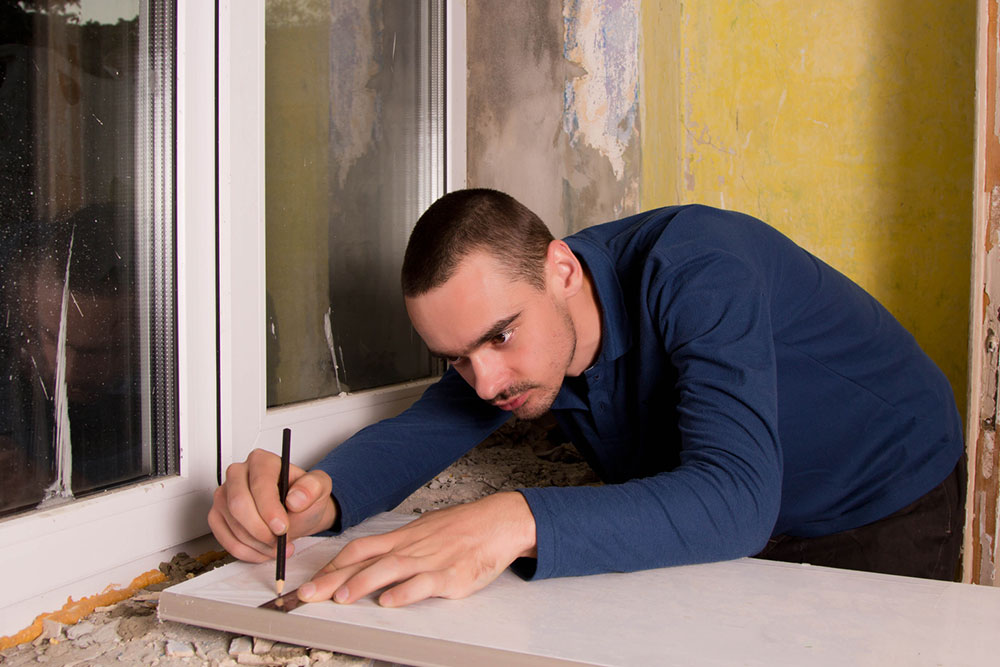Top 20 window replacement mistakes to avoid

Window replacement is a significant decision and an investment. New and the right type of windows not only elevate a home’s aesthetic appeal but also ensure optimal sunlight seeps through. That said, like with any other major home improvement project, homeowners can make mistakes when replacing windows. For instance, the wrong material can erode quickly, or the misalignment of windows can cause security issues. Here are a few window replacement mistakes homeowners should avoid:
1. Disregarding energy efficiency ratings
In pursuing visually appealing windows, homeowners may inadvertently disregard the pivotal aspect of energy efficiency. Detailed knowledge about energy ratings, such as U-values, is essential. Overlooking this consideration can increase utility bills and make a home less eco-friendly.
2. Failing to take precise measurements
The process of replacing windows starts with accurate measurements. Homeowners, often lured by the prospect of a swift upgrade, might underestimate the importance of precise measurements. Ill-fitting windows resulting from measurement errors can let in drafts and compromise insulation, making the home less energy-efficient.
3. Underestimating ventilation needs
Windows are instrumental in facilitating proper ventilation within a home. Underestimating each room’s unique ventilation requirements can result in inadequately ventilated spaces or excessively drafty spaces. This oversight can adversely impact indoor air quality and overall comfort.
4. Prioritizing cost over quality
In the hopes of staying within budget, homeowners might be tempted to compromise on the quality of their windows. Opting for low-cost, low-quality alternatives may seem like a financially good decision initially but can lead to frequent repairs and replacements in the long run, quickly cutting into short-term savings.
5. Ignoring local building codes
Each locale has its own specific building codes, and overlooking these can have legal ramifications. Homeowners who are unaware of or indifferent to local building codes risk facing legal challenges and may incur additional expenses to bring their window replacements in line with regulations.
6. Overlooking maintenance requirements
The allure of aesthetically pleasing windows can distract homeowners from considering the maintenance demands of different materials. Failure to account for these requirements may result in unexpected and burdensome upkeep, impacting the longevity and appearance of the windows.
7. Focusing excessively on the visual appeal
While visual appeal is crucial, fixating solely on aesthetics without considering practical aspects can lead to dissatisfaction. Achieving a harmonious balance between style and functionality ensures that the selected windows enhance the home’s interior and exterior.
8. Refusing to consult experts and seek their services
Taking on a home improvement project may tempt homeowners to undertake window replacements independently. However, this endeavor often requires professional expertise. Incorrect installations not only jeopardize energy efficiency but can also compromise the home’s structural integrity.
9. Neglecting warranty details
A warranty is a safety net for homeowners investing in new windows. Failing to understand warranty details, including coverage duration and conditions, thoroughly can result in unforeseen expenses and complications if defects or issues arise.
10. Making haste decisions
Impulsive decisions in the window replacement process can lead to regret. Hastening through the decision-making process without thorough research may result in choices that don’t align with the home’s unique needs and style.
11. Failing to consider the importance of natural light
Windows plays a pivotal role in determining the natural light that enters a space. Not considering how natural light can lead to poorly lit interiors or excessive glare is a mistake. Light can impact the ambiance of different rooms. For instance, homeowners with media rooms should consider installing tinted windows to let less light in. On the other hand, they should consider installing floor-to-ceiling windows in their living spaces.
12. Overlooking security features
Windows are potential entry point for intruders. Overlooking security features, such as robust locks and laminated glass, compromises the home’s safety. Prioritizing security considerations ensures that the new windows contribute to a secure living environment.
13. Failing to consider sound transmission
Windows also influence sound transmission into the home. Being unaware of the soundproofing capabilities of different window types can lead to noise disturbances, affecting the tranquility of the living space.
14. Dismissing professional guidance
The expertise of window professionals is indispensable. Dismissing their insights can result in suboptimal choices and installations. Consulting with professionals ensures that homeowners receive personalized advice based on their unique needs and circumstances.
15. Failing to have a contingency plan
Unforeseen challenges are inherent to window replacement projects. Failure to plan for contingencies, such as weather delays or unexpected structural issues, can result in frustration and budget overruns. Homeowners should approach the project with a flexible mindset and a contingency plan to ensure a smooth progression.
16. Choosing the wrong window style
The aesthetic appeal of windows is subjective, but choosing a style that clashes with the home’s overall design can be a significant mistake. Each architectural style has compatible window styles, and selecting the wrong one can detract from the home’s visual harmony.
17. Neglecting weather conditions
The local climate and environment should influence window choices. Neglecting to consider factors such as exposure to harsh sunlight, heavy rainfall, or extreme temperatures can lead to premature deterioration of windows and increased maintenance needs.
18. Failing to consider long-term resale value
Home improvement projects should enhance living conditions and the home’s future resale value. Not considering the potential impact of window choices on resale value can be a missed opportunity for a wise investment.
19. Overlooking the importance of window framing
While much attention is given to the glass component of windows, the framing material is equally crucial. Overlooking the importance of durable and weather-resistant framing materials can result in structural issues and reduced energy efficiency.
20. Ignoring personal lifestyle considerations
Every homeowner’s lifestyle is unique, and windows should align with individual preferences. Ignoring personal lifestyle considerations, such as the need for easy cleaning, child safety features, or enhanced privacy, can lead to dissatisfaction with the chosen windows.


